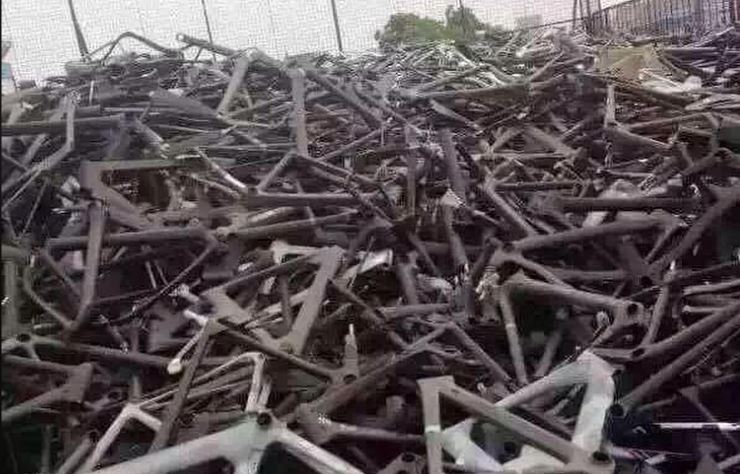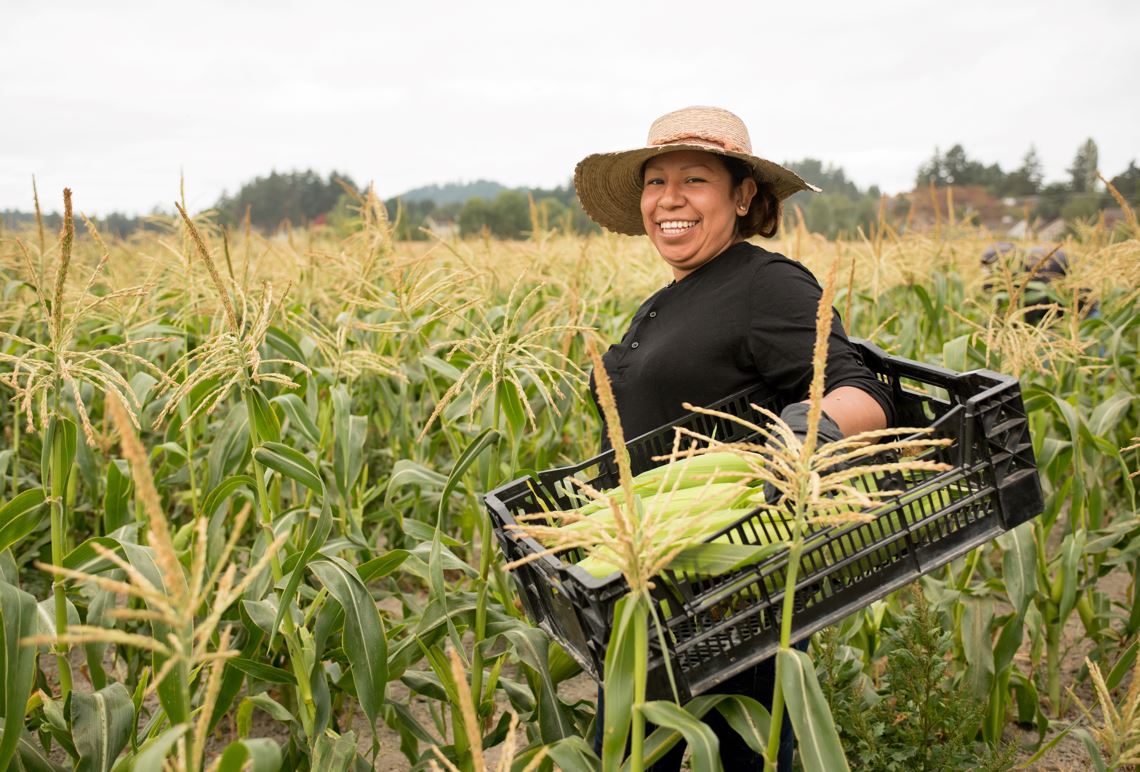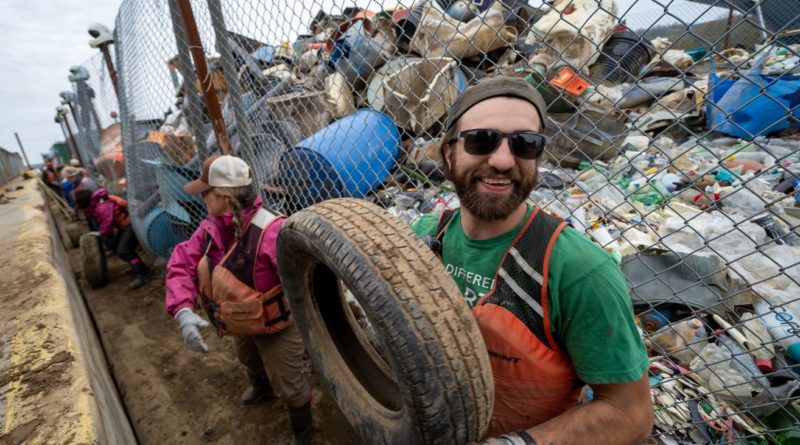Part two: How is the bike industry cleaning up its carbon, rubber and food production?
Earlier this month CI.N took a look at the industry’s record to date on sustainability reporting, cleaner battery innovation and recycling efforts, plus the clothing market’s record on reducing its footprint on the planet. In this part two analysis we take a look at the efforts to tidy up lasting carbon fibre wastage, the amount of rubber going to landfill and touch on the production of nutritional goods too…

Carbon: a thorn in the recycling effort
Notoriously hard to give new life to once the consumer has decided the product’s life has come to an end (but not impossible), carbon fibre has been a difficult material to make any environmental claims on and very few brands openly discuss end of life here. What’s more, production of the virgin material is energy intensive, making up 90% of the energy used to create a product.
When CI.N explored this subject a few years ago, CFK Recycling of Germany kept emerging as a name that those in the business making genuine efforts tended to lean on. Operational since 2011, the boss Tim Rademacker told us at the time “for the bicycle business we recycle 15 tonnes per annum” in a process that reclaims the fibres via chemically separating the glues used to hold them together.
Most recently, the SRAM Group appears to have begun to take the issue seriously and eagle-eyed patent watchers spotted in June a listing filed in Q3 of 2020 that proposed to deliver a new carbon recycling process to be used across the group, thus reclaiming material for further use in future.
In short, scrap material can be used to create a fibre-containing molding compound. A secondary line can thereafter be used in the molding of parts. The compounds, according to the filing, will have adjustable strength attributes dependant on the chemicals required to break down the old resin.
Pole Bicycles pledged in 2017 never to return to carbon frame manufacture citing some of its concerns about the material’s lasting impact.
Tyred of the waste
We leaned on an expert in tyre waste in Velorim, whose business now assists the UK bike shop network with tyre recycling services for insight into the afterlife of rubber goods. Director Dave Hawthorn starts with a stat: “Detailed research carried out in 2018 showed that there is a theoretical 44,000 tonnes of bicycle rubber (i.e. tyres and tubes) disposed of annually in the UK.”
Using a calculator on the measureofthings.com we can put into context that this combined weight is about the same as four 4.5 Eiffel Towers. “The vast majority of this is believed to go to landfill, mainly via cyclists’ domestic bins, taking them to council waste facilities or via bike shops taking them in exchange for new ones,” adds Hawthorn.
There is a potentially more toxic outcome of not disposing of tyres properly. We’re told that Hawthorn’s greater concern is larger stores sending off bulk loads via a waste contractor, which are first destined for a shredding and baling facility. It is at this point that the salvage is then used as open fuel, often shipped overseas before returning the carbon to the atmosphere.
While Hawthorn’s business revolves around tyre disposal he is an advocate of not taking the out of sight out of mind approach. Velorim’s disposal services seek to create a circular economy whereby rubber collected by his business is broken down into its constituent parts. From there the feed stock returns to a state where it is possible to manufacture new rubber products.
The concept has resonated in the trade too, since last summer take up has been strong. “It is still early days, but to date 20% of the trade has joined the scheme,” he says.
During September Vittoria made a bold claim with respect to a $20 million expansion of its Thailand facility, pledging that despite a plan to double production the plant would become “carbon neutral”. To achieve this lofty goal the business has committed to running the plant on solar energy, as well as implementing intelligent climate controls in the building, as well as putting to use bio and recycled materials wherever possible.
 A word on the food chain
A word on the food chain
Long before many in the bike world began to even register sustainability as a topic worth dedicating resource to Clif Bar was well underway with delivering sustainable practices to its supply chain and production. Spectacularly, Clif lays claim to having climate neutral operations for the past 18 years.
Roma McCaig, SVP of Impact & Communications, Clif Bar told CI.N: “We have increased our organic ingredient usage year after year to make up more than 80% and during that time have lobbied for over 10 years on climate advocacy, creating change in state and national government.”
Fundamentally the business is set up around an annual 5 Aspirations Report, published to the firm’s site each year. The five pillars are sustaining our people, community, planet, brands, and business.
McCaig explains: “From LEED certification and solar power at our facilities to the benefits we offer our employees, like our Cool Commute and Cool Home incentives, we are working on programs big and small that can make a positive impact on the planet.”
Though Clif is famed for its work at the headquarters, some of the landmarks come from within its kitchens. In 2020, the bakery in Twin Falls, Idaho achieved two firsts: the first TRUE Zero Waste certified facility in Idaho, and the first food manufacturing plant in the world to be recognized as LEED Zero Waste. The Indianapolis bakery, already certified LEED Silver, is working toward zero waste certification in 2021.
Aiming to be net positive by 2030, there’s still work to be done, even after two decades’ efforts. Some of these changes require encouragement outside of the business and for Clif that has meant using its influence to help others bring about changes.
“We recognise that for our sustainability efforts to be successful and really make a positive impact on climate change, the food industry needs systemic, transformational change that will require collaboration between industry and government. This includes work on solutions for sustainable packaging, something we are actively working on with our pledge to the Ellen MacArthur Foundation Global Commitment that by 2025, 100% of our packaging will be reusable, recyclable or compostable,” says McCaig.
So, what’s the veteran view on where and how others can start their journey toward sustainable practices? McCaig concludes: “It is important for companies who are getting a sustainability program going to start small and think big. And, no one can do it alone. Through collaboration and partnership, businesses can make a stronger impact faster by working together.”
Verify your efforts – B Corp status
Certified B Corps are those that deliver the highest standards of verified social and environmental performance, as well as high levels of transparency and accountability. Bike industry businesses that pass that bar include insurer Bikmo, bike label Surly, U.S. distributor QBP, manufacturers Chris King and apparel label Alpkit, electrolytes tab label Nunn, plus Beryl bike share.



